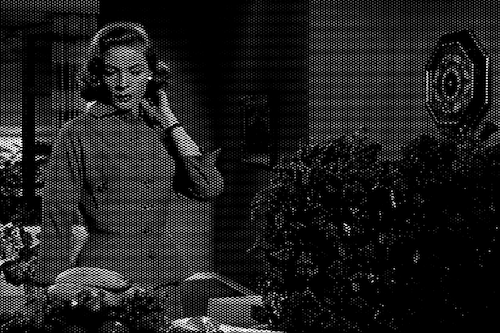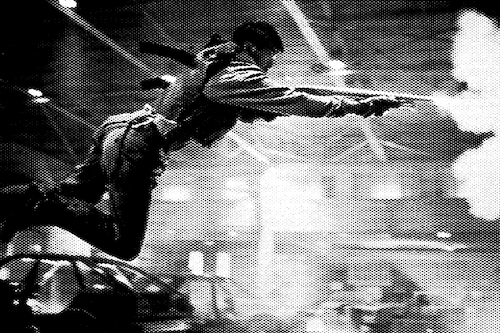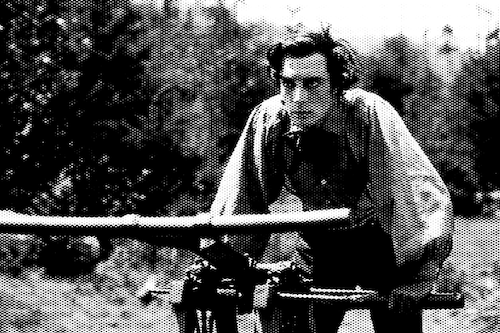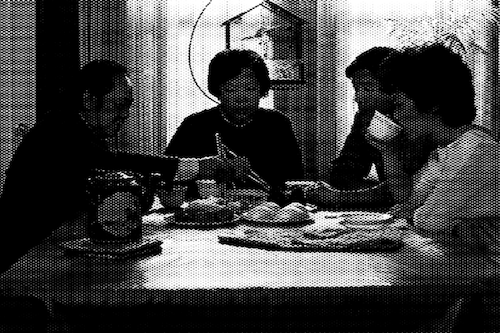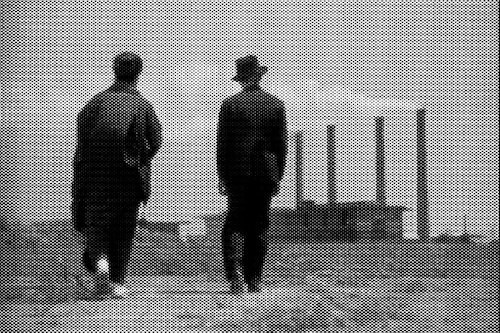This Week in Cinema, I Learned…Jan 7-13 2024
Written by Cameron Geiser
Welcome to This Week in Cinema, a yearlong film criticism project wherein I will be watching a new film that I haven't seen every single day.
Welcome to the second iteration of This Week in Cinema! It's a strange gathering of films this week, mostly straddling the tonal line between impactful family-oriented melodrama and a sprinkling of easily digestible genre flicks. The through-line of all these films however is the importance of nourishing the soul through action. Through gunfire, swordplay, by way of romantic truths, or by intimately discussing family matters bluntly with each other- When you know that you must act to do the right thing, no matter how hard it hurts to speak your truth, selflessness and humility ring true. It may be a bit of a reach, but even Puss in Boots: The Last Wish contains this notion- and was surprisingly effective in its execution of those ideas. Not every story needs to be grandiose in nature or scope, as long as the core tenets of your ideas connect with people, put all the style and personality on it, as much as you can muster! These films before you all do this in a variety of ways, some more so than others, but this week's films were a hopeful bunch, restoring some much-needed faith in humanity.
JANUARY 7th
Written on the Wind (1956)
5/5
This is my first time watching a Douglas Sirk film, and I was blown away by the deftness of skill on display both in front of and behind the camera. I was initially drawn to the picture due to Rock Hudson's involvement, as I had never seen one of his films either. I'd had an intellectual hook snagging my curiosity ever since the film criticism Youtuber Patrick H. Willems had focused on Hudson's role within cinema after watching Giant during his Turner Classic Movies Wine Club episode during the infamous 2020 talk show version of his channel (which I highly recommend).
Anyways, this film is so tightly wound in narrative skill with pack-a-punch dialogue spat out by knife-tongued characters who are quick to anger and faster to love that it was almost overwhelming! Robert Stack stars alongside Lauren Bacall, the previously mentioned Hudson, and Dorothy Malone in a quartet of characters that play off of each other so brilliantly that it almost feels as unreal as the heightened atmosphere that fills each scene. The story is about the Hadley Oil family that runs a small town in Texas and the adult children Marylee Hadley (Malone) and Kyle Hadley (Stack) who commiserate amongst themselves and others. Mostly the Hadleys wrangle others into their web of discontent, namely Mitch (Hudson) a surrogate brother to Kyle, and Lucy (Bacall) a Hadley secretary who gets swooped into the fold by Kyle Hadley's playboy-style life even though she isn't initially impressed by the antics. The most interesting character in the bunch however is Hudson's Mitch Wayne. Mitch is almost always in the background of shots until he's the center of attention, which is a gradual process throughout the runtime.
I can't say enough about this film, it was a total surprise of quality and one that I encourage people to watch! I'll be keeping the name Douglas Sirk in mind from now on, including of course the phenomenal cast as well.
January 8th
Hard Boiled (1992)
4/5
This movie absolutely rules. I've always enjoyed the few John Woo movies I have seen, but Hard Boiled is another level entirely. I thought I was going to be able to predict the whole thing after the first act but I was so happy to be proven wrong. Chow Yun-fat stars alongside Tony Leung with the former as your typical supercop extraordinaire and the latter as the coy undercover cop who's always about to break under the pressure of surviving in the criminal world. The action, as you might expect from John Woo, is spectacularly shot but it's the kinetic energy in those scenes that keeps your pulse pounding well into the following quieter moments- which never last too long anyway. The story is a simple one, but it's the near-unimaginable style that makes this film so eminently watchable. Though the story may never reach the heights of dramatic storytelling, Woo knows to keep the pacing snappy, the scenes tight and economical, and to constantly move the story forward in clever ways.
January 9th
The General (1926)
3/5
I almost feel bad giving this film only three stars, but I can only give my own critical perspective as I see it. That being said, I quite enjoyed Buster Keaton's The General. It was playful and cartoonishly comedic in the best of ways from start to finish. During the Civil War, the North was beginning to travel south into enemy territory, near where our protagonist Johnny Gray (Buster Keaton) lives and operates his train engine, The General. As the spies from the North steal The General and plan on burning any bridges they cross to ruin the enemy's supply line, Johnny Gray ambles after them to get his train back. In a series of extremely well-timed physical comedy stunts Buster Keaton entertains throughout the film in ways that were truly groundbreaking for the time, the story and filmmaking never really grabbed me, but it was all very well done. It's a simple story, that of the pursuit of happiness in a way, and certainly a film that every student of the craft should watch at some point.
January 10th
Suzanne’s CareeR (1963)
3/5
The second of Éric Rohmer's Six Moral Tales, Suzanne’s Career is an expansion upon the foundation built in The Bakery Girl of Monceau, with a stronger narrative style evolving within the French New Wave auteur. This film is a story about a love triangle formed in the chaos of youth and naiveté. The story is told from Betrand's (Philippe Beuzen) point of view as he navigates school and the various social scenes that his friend Guillaume (Christian Charrière) drags him to. During one of these instances Guillaume eyes Suzanne (Catherine Sée) at a cafe and pursues her to Bertrand's chagrin. It's a tale of teenage romance, bad friends, and manipulation, usually by Guillaume's hand. Though the story here doesn't have Guillaume at its heart, but rather Bertrand and Suzanne, and what could have been. The narrative here flows much more smoothly than I'm used to with French films of the time, and, well, I think I'm beginning to like Éric Rohmer's style.
January 11th
Dim Sum: A Little Bit of Heart (1985)
4/5
An ode to Ozu is enough of a hook to get me to watch Dim Sum: A Little Bit of Heart from Wayne Wang. It also doesn't hurt that I had already seen his earlier film Chan is Missing, which I wrote about for Noir November in the autumn of 2022- which I adored. This family drama is about the generational strife between parents and their children, a theme Ozu would return to time and time again in his career. I knew I was in good hands when Wang lovingly stole exact shots from the iconic Tokyo Story, in fact, you can feel the undercurrent of that film's emotional uppercut at key moments throughout this film's genial and charming pace. The story centers around Geraldine (Laureen Chew) and her widowed mother (Kim Chew). Uncle Tam (Victor Wong) and Auntie Mary (Ida F.O. Chung) are spirited side characters in the family that ooze personality, but the main struggle of the film is between Geraldine wanting to wait for marriage and her mother's insistence on her getting married before she dies. You see, Geraldine's mother was once told by a fortune teller in China that she would die in her sixty-second year of life, and that year has come. The whole film is constantly reaffirming the simple yet powerful notions of community, family, of a neighborhood that looks after each other. Not to mention that the film is damn funny! I could have taken a whole series of those older Chinese American women playing dominoes and talking smack to each other, it was rejuvenating. This one is worth your time friends.
January 12th
Puss in Boots: The Last Wish (2022)
4/5
After being told several times by some persistent friends that “Yes, the second Puss in Boots movie, is good actually” I finally had to give it a shot. After having seen the film, I must say, I have to agree. It's a simple tale of knowing how to appreciate what you have, but again, the purrfection is in the execution. The animation style implemented here feels like that of the Spider-Verse films, or the recent Teenage Mutant Ninja Turtles: Mutant Mayhem. Computer-rendered depth and volume meshed with a more hand-drawn aesthetic works for those films, and it's a welcome addition to this series as well. On top of the good moral lessons that are depicted with assurance, the real draw for me was the threat of the film: death. Puss (Antonio Banderas) is on the last of his nine lives and once he hears of a way to reset his nine lives, by obtaining the mythical last wish granted by a fallen star, he sets out to find it. All throughout his journey he is hunted by the very real manifestation of Death itself in the form of a Wolf (Wagner Moura) wielding two sickles. The whole film was a delightful surprise but it is in the fight scenes where the movie really shines. Not often does a children's animated movie know the value of kinetic energy and weight in regard to movement and momentum within a fight. Its outstanding animation and truthfully the film didn't need to go that hard- but it did. Give this one a watch, even the supporting cast gets a lotta love with regard to character development.
January 13th
The Only Son (1936)
4/5
The last film of the week is the first Ozu film of the year. Having begun my journey into Ozu's filmography by starting in his late master period beginning with Tokyo Story (one of the finest films of the twentieth century!), jumping back in time to Ozu's first talkie was a fascinating view into the changes he made to his infamous style over the decades. One of the first things I noticed was the variety of camera shots and techniques that he would eventually shed as he later refined his system. The story at hand is a very familiar one if you've seen other Ozu films. A widowed single mother in central Japan vows to send her child to school despite her financial woes. There's also a substantial time jump roughly fifteen years later when the mother takes a trip to Tokyo to visit her son and see what his life is like years later. To her surprise, her grown son now has a house, a wife, and a baby boy! Though they live a harsh fiscal existence as he teaches Night School while living in a poor neighborhood. The filmmaker's frequent themes and subtexts of family, love, sacrifice, and disappointment are all present and accounted for and executed in a fashion that could only be the work of master dramatist, Yasujirô Ozu.
Cameron Geiser is an avid consumer of films and books about filmmakers. He'll watch any film at least once, and can usually be spotted at the annual Traverse City Film Festival in Northern Michigan. He also writes about film over at www.spacecortezwrites.com.


